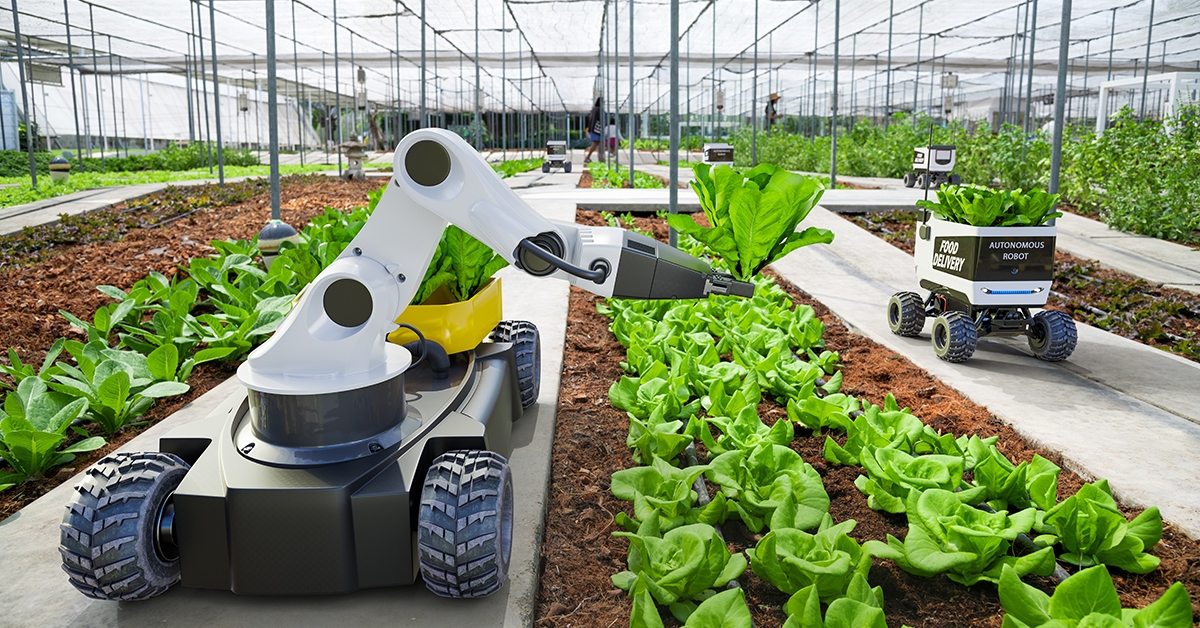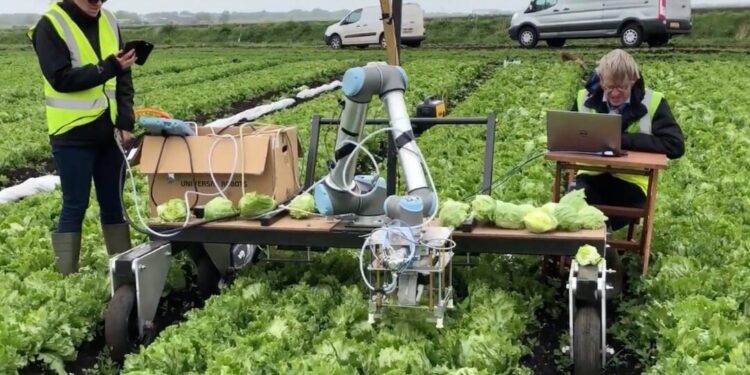Farming has been around for thousands of years and will likely continue to thrive in the future. In order to keep up with growing demand, new farming technologies are constantly popping up. From vertical farms that grow crops year-round to high-tech horticultural installations, the agriculture industry is always looking for ways to increase output and cut costs.
One of the newest farming trends is automation. Farmers are turning to technology in an attempt to make their operations more efficient so they can grow more food at a lower cost. With that said, not all automation technologies are created equal. Some are better suited for small operations while others require a large capital investment.
How does automation work?

You can automate many of the processes that happen on a farm. For example, you can program equipment like tractors and balers to only work at certain times, or to only be used during certain parts of the growing season. You can also program equipment to only work at certain intervals. This can help you save money and increase efficiency.
Automation can also help farmers produce more. Machines can do things humans can’t like picking and packing produce faster and more efficiently. You can also use technology to help farmers predict the weather and harvest crops more accurately. This can help you know when to plant crops and predict when crops will be ripe and ready to harvest.
Robotics and Automation
Robotics are machines that are controlled by software. There are many different types of robotics that can help farmers, like remote-controlled (RC) machines and autonomous robots. With these, you can control machines using cameras and sensors, allowing you to make smarter decisions.
For example, autonomous machines can automatically check fruit to make sure it’s ripe and to pick the right product. Using sensors and cameras, you can also monitor your farm more closely than humans can. This can help you spot problems like pests or crop damage earlier and more accurately.
Robotics also allows farmers to do things that were once impossible. In the past, farmers had to manually carry water from a well to their fields. With automation, you can use robots that carry water for you. This can help you save time and money as you don’t need to spend as much time checking crops.
Smart Farming and Data-driven Farming
A smart farm uses data to automate tasks. This allows farmers to spend more time on things like planning, sales, and marketing. This can help your business grow and be more profitable. You can also use data to help farmers automate tasks. This can help you save time, money, and resources.
For example, you can use data to help farmers plan their crops and forecast the weather. This can help you forecast when crops will be ripe, and you can use that information to your advantage. Using data to automate tasks can also help farmers reduce their environmental impact.
With more advanced sensors, you can track and track environmental conditions like temperature, humidity, soil conditions, and rainfall. You can then use data to inform irrigation schedules or when to plant crops. This can help you reduce the impact on the environment by using fewer resources like water.
Future of Farming: What’s next?
As we discussed, automation has allowed farms to operate more efficiently. For example, sound waves allow you to check if ripe produce is in the field. This is an example of next-generation IoT technology. Machine learning and artificial intelligence are also being used by farmers to help make better decisions.
This can help you grow and optimize your business, increasing profitability and sales. New and emerging technologies are also being used to help farmers increase food production.
For example, climate prediction allows you to grow crops in different parts of the world. Genetic engineering allows you to grow crops that have more nutrients and fewer pests. This allows you to produce more food with fewer resources.
Benefits of smart farming

New and emerging technologies are improving conditions for farmers. For example, the trend towards automation means that fewer people are needed on a farm. This can help farmers earn higher wages and reduce the impact of climate change.
New technology can also help you reduce water usage. For example, smart irrigation systems can adjust to the amount of water in the soil. This allows you to reduce irrigation inputs like water, energy, and fertilizer. New and emerging technologies can also help you reduce your environmental impact.
For example, using sensors and data, you can track the environmental conditions on your farm. This allows you to make better decisions like when to water crops. New and emerging technologies can also help you increase productivity and sales. For example, using data, you can optimize irrigation and planting schedules. This lets you produce more food and earn more profit.
Disadvantages of smart farming
New technologies can also increase your environmental impact. For example, by using automation, you’re using fewer people. This means you have fewer workers and fewer jobs. New technology can also lead to more food waste. This occurs because farmers are storing more food that isn’t consumed. This leads to more waste that is sent to landfills.
This can also lead to more resource misuse. New technologies also require more technology investment. For example, you need to invest in sensors and equipment to use smart technology. This can be expensive and require you to change the way you operate. New technologies can also lead to increased energy use. For example, when machines are automated, you need to use more energy. This can result in higher greenhouse gas emissions.











